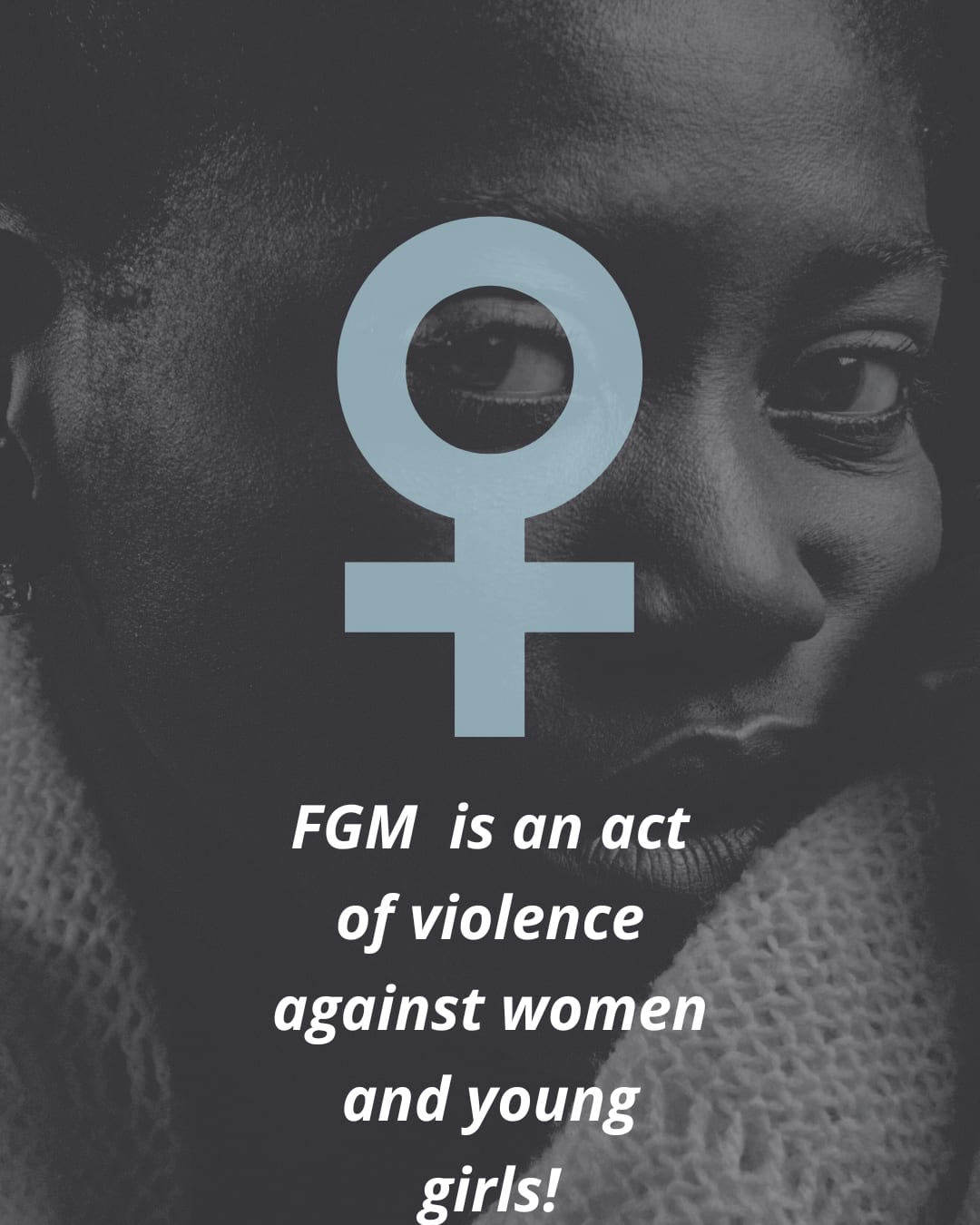FGM: A Silent Violence Inflicted on Women and Girls
PROTECTING WOMEN AND GIRLS FROM FGM
Attention Women! Today, we need to talk about a critical issue that affects the rights and wellness of women and girls worldwide, this issue is Female Genital Mutilation (FGM).
In Gambia, a concerning bill to decriminalize FGM is currently under consideration and it has recently passed the second reading. This bill aims to reintroduce FGM which was banned by the then President Yahya Jammeh in 2015. This move has sparked widespread conversations and raised alarms among organizations advocating for the rights of women and girls, highlighting the need to keep this harmful practice banned and what it could mean for the women and girls of Gambia and others all over the world. So let’s have a conversation about this. What is FGM?
FEMALE GENITAL MUTILATION (FGM)
Female Genital Mutilation (FGM) is a deeply harmful practice involving the partial or complete removal of the external female genitals or sewing up of the genital area, leaving only a small opening for urination and menstruation. This procedure is inflicted on girls and women often as a cultural or religious tradition and it poses significant physical and emotional risks.
Despite efforts to eradicate this practice, it remains prevalent in some communities where it is erroneously viewed as a symbol of purity and sometimes a rite of passage for women. However, the truth is that FGM does nothing to benefit women and girls; instead it perpetuates a cycle of suffering, violating their human rights and endangering their health and well-being.
Right now, it is has become imperative to join our voices with Gambian women and speak more loudly on the severity of the physical and emotional consequences of FGM which include severe pain, urinary problems and even death in case of botched procedures. We must take urgent action to end FGM and protect the rights of Gambian women and girls, and others all over the world. We must continue to awareness, relentlessly advocate for policy changes, and provide needed support to organisations working to combat this violation of human right.
One of the ways you can join in this advocacy is by raising more awareness about FGM and advocating for its complete eradication. Share this post, educate others about the realities of FGM, and support organisations working to protect women and girls from this harmful practice. If we all work together, we can make huge strides, and ensure a world where every woman and girl is safe and free from the threats of FGM.
DEMYSTIFYING HARMFUL MYTHS ABOUT FGM
Continued awareness, advocacy, and action are essential in ending FGM once and for all and one of the important areas of raising awareness is debunking age long myths that have permeated different cultures and continue to perpertuate falsehoods about FGM. Let’s explore some of this myths:
1. FGM is necessary for hygiene and cleanliness.
- FGM is often falsely believed to improve hygiene and cleanliness in girls. However, medical evidence overwhelmingly shows that FGM can lead to severe health complications such as infections, urinary problems, difficulties with menstruation and childbirth, and even death in some cases.
2. FGM is done to stop young girls and women from being promiscuous.
- The belief that FGM prevents promiscuity is rooted in patriarchal beliefs aimed at controlling women’s bodies and sexuality. However, it does not reduce sexual desire or promiscuity. Instead, it inflicts physical and psychological harm, severely impacting women’s mental, sexual health, and overall well-being. Women should reserve all autonomy and rights to their bodies.
3. FGM is a harmless tradition and no different from male circumcision.
-Contrary to the belief that FGM is a harmless tradition similar to male circumcision, it is a form of violence against women and girls. It violates their human rights, undermines their autonomy, and causes lasting physical and psychological harm. Male circumcision, on the other hand, involves the removal of the foreskin and has a significantly lower rate of adverse reactions.
4. FGM is a private family matter and should not be interfered with.
-The idea that FGM is a private family matter is misguided. It is a gross violation of women’s and girls’ rights, and all sectors of society, including governments, communities, and individuals, have a responsibility to protect girls from FGM and uphold their rights to health, dignity, and bodily integrity.
5. FGM no longer happens today.
-Despite efforts to eradicate FGM, it remains prevalent in many parts of the world, including countries like Gambia. The current push to repeal laws criminalizing FGM goes further to show the deeply entrenched cultural beliefs, social norms, and gender inequalities that perpetuate this harmful practice.
Every woman deserves to live a life free from harm and discrimination; yet, harmful practices like Female Genital Mutilation (FGM) continue to threaten the wellness and rights of women and girls worldwide. FGM, along with other harmful practices, not only poses serious risks to the health and wellness of women, but also deepens inequalities and violates human rights. It is important that we stand together to end these practices and ensure the safety, health, and well-being of all women.
Today we leave you with the words of the feminist icon Justice Ruth Bader “Women’s rights are an essential part of the overall human rights agenda, trained on the equal dignity and ability to live in freedom all people should enjoy.” Women deserve to have their rights respected and to live in freedom from harmful practices.
24 Apr 2024







